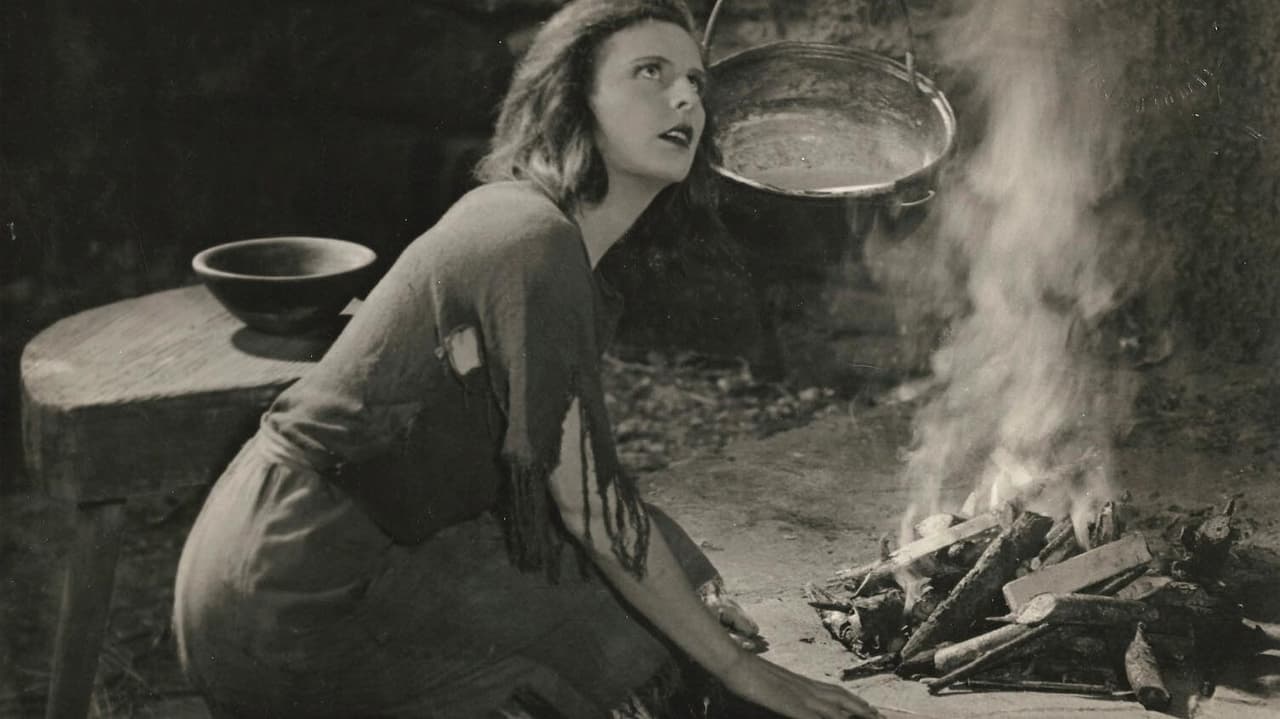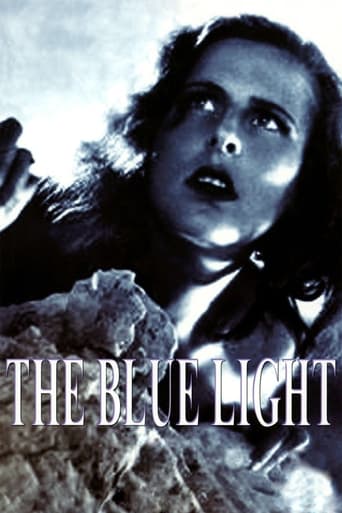Redwarmin
This movie is the proof that the world is becoming a sick and dumb place
ScoobyMint
Disappointment for a huge fan!
ShangLuda
Admirable film.
Horst in Translation (filmreviews@web.de)
"Das blaue Licht" or "The Blue Light" is a German black-and-white film from over 80 years ago. Writer, director and lead actress is Leni Riefenstahl and this film is one of the main reasons that brought Riefenstahl the adoration of Adolf Hitler, who made her his number-1 propaganda documentary filmmaker for years to come. This one, however, was still made before the Nazi party came into power. Riefenstahl plays a woman, dishonored by society, who lives in the mountains. The men lover her though and several men go to the mountains because of her, where they die from falling in the rocky, rough landscape. However, when the main character, Junta, finally warms up to a man courting her, she is about to face the most severe form of betrayal.The reason is that this is not only a film about love and interhuman relationships, but also about trust and a huge treasure. I must say I liked the ending here. But I am not sure if it is worth waiting for 80 minutes as most of the scenes before aren't really that great or memorable. As solid as Riefenstahl's and Béla Balázs' work behind the camera is, I am not too sure if casting the filmmaker for the main character was a good choice here. She does not have the looks for being considered some sort of femme fatale. Then again, tastes differ, and were probably especially different that long ago. This is a sound film, but there is no color yet and this fact really hurts the film as you could expect with a color being included in the title even. As a whole, I do not recommend the movie. Simply not good enough.
retributionpublications
WARNING.....SLIGHT SPOILER!!!!Leni Riefenstahl is fantastic in this film, which she directed, wrote, and starred in. This movie is generally considered to be a German 'mountain film', to which Refenstahl generally takes a great deal of influence from, though it came out significantly later than most of the films from that genre, such as `The White Hell of Piz Palu' (Die Weiße Hölle vom Piz Palü) or `Storm Over Mont Blanc' (Stürme über dem Mont Blanc) both of which Riefenstahl herself starred in.This is a movie about nature and modern man's disrespect for it. Vigo, an urban citizen who comes to a village in the mountains, meets Junta (Riefenstahl), an outcast believed by most of the villagers to be a witch. Vigo discovers that Junta is the only person known to have climbed the mountain to the cave where a 'blue light' shines on every full moon. The light, which is believed by the villagers to hypnotize young men, is blamed for the countless deaths of the villagers who attempt to climb the mountain only to fall to their deaths. When Vigo discovers Junta and followers her to the cave, he realizes that the 'light' comes from millions of valuable jewels that lie in the walls of the mountain. Although by this point Vigo has formed a romantic relationship with Junta, instead of keeping the jewels a secret and thus, sacred (as Junta does) he decides to tell the villagers, who rape the mountain of its riches and become wealthy. The outcast Junta gets nothing, and is devastated because the light which once glimmered from the mountain is now gone.Vito is constantly portrayed as a `Goethe type' - the 19th century archetype intellectual, and we know that he is used to symbolize the higher echelon of German society. Junta, however, is an outcast and a social misfit. She is filmed much like an animal of sorts...wearing rags, hunched over, and constantly running from villagers who want to stone her to death. When Junta and Vito get together, it becomes obviously unnatural and awkward. The fact that Junta and Vito also do not speak the same language is paramount to the notion that communication between nature and high society does not exist. In the end, he uses her knowledge, and chooses financial wealth over love. This is a message (albeit a depressing one) to modern civilization everywhere, delivered with expressionistic flair and a filmatic brilliance that won't be found anywhere else.
awalter1
`The Blue Light' tells the story of a small mining village lying in the shadow of an unusual mountain. During every full moon a blue light issues from the peak, causing young men in the village to take leave of their senses and attempt to climb the mountain in the middle of the night. This always ends in death for one of the village men.Junta, a young woman who lives in the hills outside the village, is the only person who has mastered the cliffs, and because of this she is an outcast. One day a stranger arrives in the village, and this man becomes entranced not with the blue light but with Junta. Eventually, he follows her up the peak and discovers the mountain's mystery, which Junta has so far kept to herself. Unlike Junta, though, the stranger cannot keep a secret. A minor catastrophe ensues, signaling simultaneously the doom of Junta and of the modern imagination.It seems uncomfortably ironic that the film was both directed by and stars--as Junta--Leni Riefenstahl, the woman who would later become known as `Hitler's filmmaker,' responsible for some of the most notorious Nazi propaganda films. Nevertheless, `The Blue Light' remains a remarkable achievement for its operatic tone and imagery and for the brilliant mountain climbing sequences. Junta's final scene is especially striking, ending in a sequence which blends compelling symbolism with poetic cinematography--a moment worthy of Jean Cocteau.In his autobiography, author Robert Aickman noted `The Blue Light' as his favorite film. He called it a `fable of the post-machine world and of the nature of love.' Elsewhere Aickman wrote: `Dr. Freud established that only a small part, perhaps one-tenth, of the human mental and emotional organisation is conscious. Our main response to this discovery has been to reject the nine-tenths unconscious more completely and more systematically than before.' Junta is one of those rare figures who is in tune with the enigmatic blue light of the unconscious self and open, as well, to that vital emotional reaction to natural beauty. It is this that makes Junta worth more than a hundred villages filled with greedy mountain-tamers. Perhaps it is no great mystery that a German film like `The Blue Light' should be made as Hitler gained power; insightful expressions of the human soul have always erupted in the most unlikely of times and with the dream thieves following close behind.
pan-10
This film was made in a sound and a silent version, as there were some theaters at the time that were still not equipped for sound. Unfortunately, it is the silent version that is being widely sold. This version is vastly inferior. The sound version is a hauntingly beautiful film. I have a sound version, but it is of poor quality and many subtitles are difficult to read. This film should be remastered. There are superb quality short excerpts from the film in The Wonderful Horrible Life of Leni Riefenstahl.

